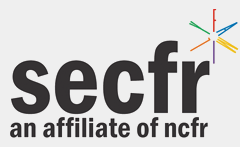Institutions in America and How They Contribute to Sexual Violence
Proposal Focus
Research
Presentation Type
Presentation
Abstract
This research looks into the ways society, the media, and the criminal justice system influence the sexual values of individuals in the United States. These separate, yet interdependent, institutions have profound impacts on the attitudes individuals have towards sexual violence. The research explores the ways we are consciously and subconsciously consumers of messages that influence how we view a myriad of issues related to sexual expression. Additionally, this research highlights how various factors contribute to the rape culture prevalent in contemporary American society. Specifically, the research explores theories rooted in the psychopathology model and argues that while some perpetrators of sexual violence are mentally ill, this model and the treatment model which are often applied by society may inadvertently provide perpetrators of sexual violence a scapegoat. Additionally, the nature of the biological theory, often referred to as the “impulse” model, is another way American society permits perpetrators of sexual violence to blame their behavior on evolution and genetic predispositions (Levay & Baldwin, 2012). Also discussed is the advancements in technology and the media’s methods of portraying sexual violence in the news and how it profoundly impacts the sexual values of Americans (Waechter & Ma, 2015). In summation, this review of the literature, will investigate how the values of sexual violence also impacts the criminal justice system, the results of sexual violence trials, and how victims are treated in the system (Moylan, 2017). The impact of sexual violence does not just affect the survivors themselves. However, there are few studies on the impact of sexual violence on secondary victims, such as family members. The majority of the literature focuses on how to help the survivor through abuse, without attention to how family members work through their own trauma. There is literature that states, following the sexual assault of a family or loved one, family and friends often experience considerable emotional distress and physical and psychological symptoms that can disrupt their lifestyles and family structures (Cwik, 1996). Responses of family members to the assault, including shock, helplessness, rage and so on, which can "parallel the affective responses of the victim" in the acute post-traumatic period (Silverman, 1978, p. 169). Undoubtedly, the impact of sexual violence is significant for the entire family, and the experience of each survivor will vary.
Keywords
sexual violence, values, rape culture
Location
Tiger I
Start Date
9-3-2018 10:15 AM
End Date
9-3-2018 11:30 AM
Institutions in America and How They Contribute to Sexual Violence
Tiger I
This research looks into the ways society, the media, and the criminal justice system influence the sexual values of individuals in the United States. These separate, yet interdependent, institutions have profound impacts on the attitudes individuals have towards sexual violence. The research explores the ways we are consciously and subconsciously consumers of messages that influence how we view a myriad of issues related to sexual expression. Additionally, this research highlights how various factors contribute to the rape culture prevalent in contemporary American society. Specifically, the research explores theories rooted in the psychopathology model and argues that while some perpetrators of sexual violence are mentally ill, this model and the treatment model which are often applied by society may inadvertently provide perpetrators of sexual violence a scapegoat. Additionally, the nature of the biological theory, often referred to as the “impulse” model, is another way American society permits perpetrators of sexual violence to blame their behavior on evolution and genetic predispositions (Levay & Baldwin, 2012). Also discussed is the advancements in technology and the media’s methods of portraying sexual violence in the news and how it profoundly impacts the sexual values of Americans (Waechter & Ma, 2015). In summation, this review of the literature, will investigate how the values of sexual violence also impacts the criminal justice system, the results of sexual violence trials, and how victims are treated in the system (Moylan, 2017). The impact of sexual violence does not just affect the survivors themselves. However, there are few studies on the impact of sexual violence on secondary victims, such as family members. The majority of the literature focuses on how to help the survivor through abuse, without attention to how family members work through their own trauma. There is literature that states, following the sexual assault of a family or loved one, family and friends often experience considerable emotional distress and physical and psychological symptoms that can disrupt their lifestyles and family structures (Cwik, 1996). Responses of family members to the assault, including shock, helplessness, rage and so on, which can "parallel the affective responses of the victim" in the acute post-traumatic period (Silverman, 1978, p. 169). Undoubtedly, the impact of sexual violence is significant for the entire family, and the experience of each survivor will vary.
![Southeastern Council on Family Relations Conference [2018-2020]](/assets/md5images/a0d3661d5139dc9b769a57be6f085156.png)

